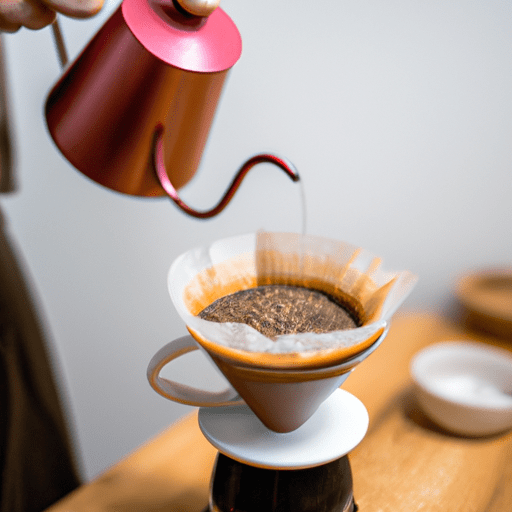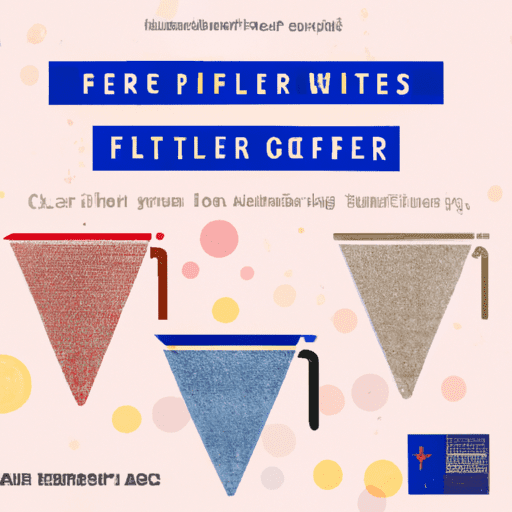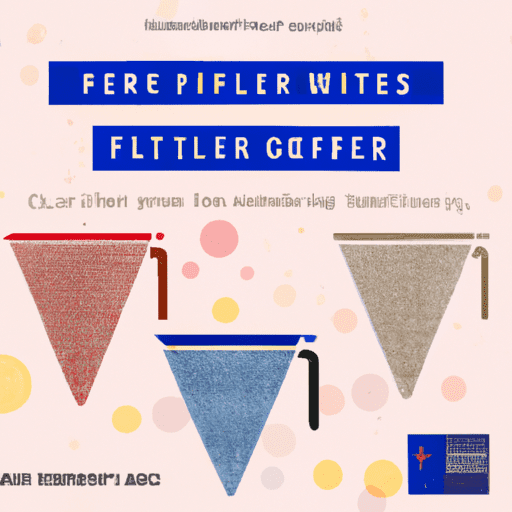In “Decoding the Best filter for pour over coffee,” you’ll embark on a pleasurable and enlightening journey into the world of pour over coffee. This article will open up an illuminating discussion around an often overlooked but crucial part of the coffee-making process – the filter. Whether you’re a casual coffee drinker or a committed caffeine connoisseur, discovering how the right filter can transform your pour over coffee experience is both fascinating and surprisingly impactful. Get ready to deepen your understanding and appreciation of this humble yet powerful component in your quest for the perfect cup.

Types of Filters
In the world of pour over coffee, you have a variety of filters to choose from. These options generally break down into three main categories: paper filters, metal filters, and cloth filters. Each filter type has its own unique advantages and quirks, making them ideal for different situations and taste preferences.
Paper Filters
paper filters are a popular choice for many coffee brewing newcomers. This option is well-loved because it typically makes for a cleaner cup of coffee. The paper soaks up most of the natural oils in the coffee grounds, which results in a brew that’s bright and flavorful.
Metal Filters
Metal filters impart a significantly different coffee experience compared to paper. These filters are made out of stainless steel or another fine metal mesh. They allow more oil from the beans and fine coffee sediment to seep into your cup, creating a heavier and more robust coffee taste.
Cloth Filters
Cloth filters are a more traditional option. Typically made from cotton or another organic material, these filters allow for the richness of oil but also offer an extra level of filtration. This balance results in a brew that combines the body of metal-filter brews with the cleanliness of the paper-filter brews.
Pros and Cons of Paper Filters
Pros of Paper Filters
The biggest advantage of paper filters is the ability to produce a crisp, clean cup of coffee. The tightly woven fibers of a paper filter do an excellent job of trapping all the small particles, and as a result, you’ll have a final product with less sediment—a pleasing factor for those who prefer a smoother coffee.
Cons of Paper Filters
On the other hand, paper filters also absorb much of the oils, which, while contributing to a cleaner cup, can cost you in terms of aroma and vibrant flavor. Additionally, paper filters are single-use, which means they generate more waste and ongoing cost for replacement.
Pros and Cons of Metal Filters
Pros of Metal Filters
Metal filters offer two primary benefits. First, they’re more environmentally friendly as they’re reusable, which also makes them cost-effective in the long run. Second, they allow the coffee oils and some fine sediment to flow through into the brew, offering a full-bodied coffee flavor.
Cons of Metal Filters
While this oilier brew can be an advantage for some, others may find the resulting mouthfeel too heavy. Metal filters also require regular cleaning to prevent residue buildup that can impact flavor over time.

Pros and Cons of Cloth Filters
Pros of Cloth Filters
Cloth filters also offer a fine balance between the brightness that comes from a paper filter and the richness that comes from a metal filter. They hold onto a lot of the sediment while still letting some oils pass through, resulting in a nuanced cup with plenty of character.
Cons of Cloth Filters
However, they require the most significant maintenance among the three. The cloth can quickly absorb flavors and odors, which can result in taste interference if it isn’t cleaned promptly and thoroughly. Cloth filters also have a shorter lifespan compared to metal filters.
Aesthetic Considerations
Sustainable Materials
If sustainability is a priority, then metal and cloth filters are your best bet. They’re both reusable and cut down on waste, compared to paper filters. Moreover, cloth filters are typically made from organic materials, adding another tick in the sustainability box.
Design and Appearance
The design and aesthetics of the filter can also be a consideration, subtly impacting your overall brewing experience. Metal filters often have a sleek, modern appeal. Paper filters exude a sense of tradition and simplicity. Meanwhile, cloth filters can bring a rustic charm to your brewing setup.
Flavor Factors
Clarity of Brew
Concerning flavor clarity, paper filters excel. They strain all the small bits and pieces out of your brew, leaving you with a clean, clear taste. This can help highlight any delicate flavors in your coffee. Metal and cloth filters do allow more sediment through, leading to a thicker brew.
Body and Mouthfeel
In terms of body and mouthfeel, metal filters are the clear winners. They help create a fuller-bodied, richer coffee with more textures. Cloth filters provide a nice middle ground—offering a heavier taste than paper, but not as much as metal.
Cleaning and Maintenance
Ease of Cleaning
Out of the three, paper filters are the easiest to clean—simply brew and throw away. Metal filters require washing after each use, but often a quick rinse is sufficient. In contrast, cloth filters need a thorough clean each time to prevent flavor carry-over.
Durability
Durability-wise, metal filters come out on top. They are sturdy and can last a long time with proper care. Cloth filters have a limited lifespan and may need to be replaced after a few months. Paper filters are not reusable, so they have the lowest durability.
Budget and Cost
Initial Cost
When considering initial cost, paper filters are quite affordable, but you’ll need to continually buy replacements. On the other hand, metal and cloth filters have a higher upfront cost but save you money in the long run as they are reusable.
Long-Term Expenses
If long-term expenses are a concern, then investing in a reusable filter like metal or cloth filters would be a wise choice. Despite their higher initial costs, they can save you quite a bit in the long term.
Brewing Method Compatibility
V60
The V60 brewer typically uses custom V60 paper filters. However, you can also find compatible metal and cloth filters for a different brew style.
Chemex
Chemex is designed to work with its proprietary thick Chemex Bonded Filters made from paper. However, some metal filters are also compatible with Chemex brewers.
Kalita Wave
The Kalita Wave also typically uses paper filters, but metal and cloth filter options are becoming available to fit this brewing method.
Expert Opinions and Recommendations
Industry Experts
For industry experts, the choice between these three types of coffee filters depends on personal preference and the desired brew quality. Many favor metal filters for their body and richness, while others prefer paper filters for their cleanliness and precise flavor.
Coffee Enthusiasts
For coffee enthusiasts, experimentation is the key. Every coffee brewing method has its unique nuances, and changing filters is a way to fully explore the potential of your brews. It’s best to test each filter and decide which one aligns with your taste buds the most.
In conclusion, the best filter for pour over coffee is subjective, reliant on your taste preferences, the brewing method used, and other factors such as budget and sustainability. Whether you choose a paper, metal, or cloth filter, the most important thing is that you enjoy the experience and resulting cup of coffee.
